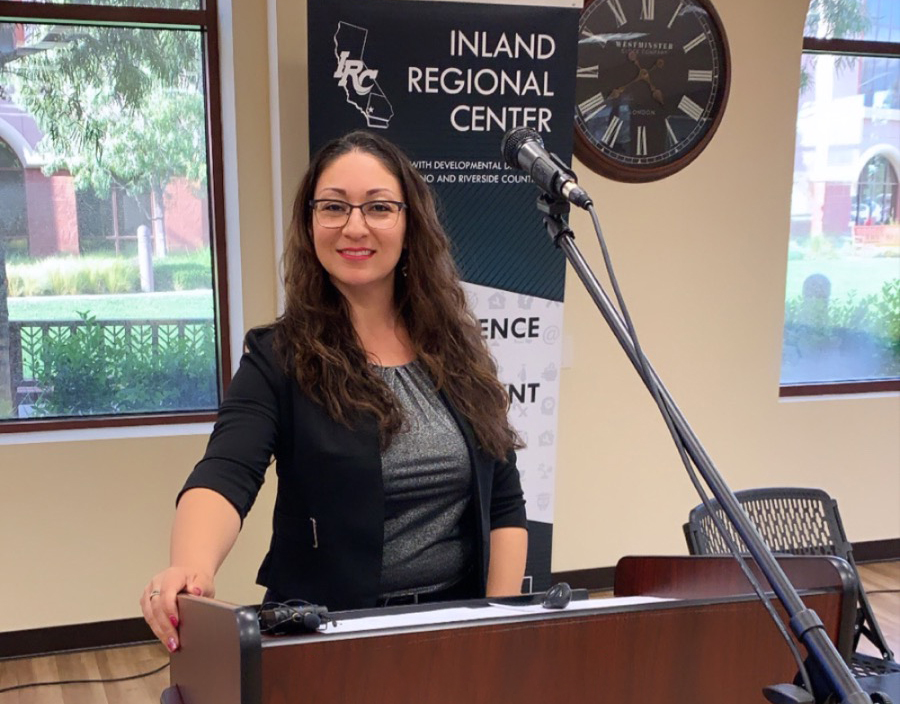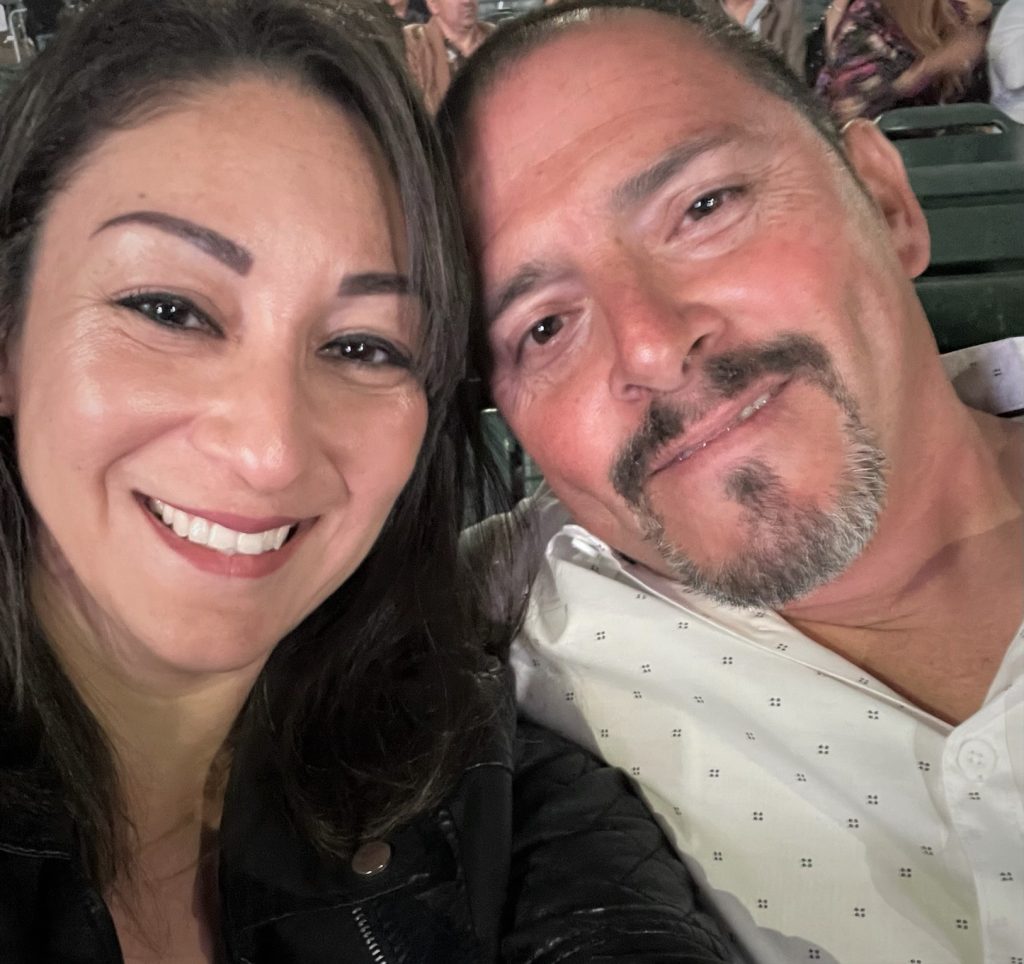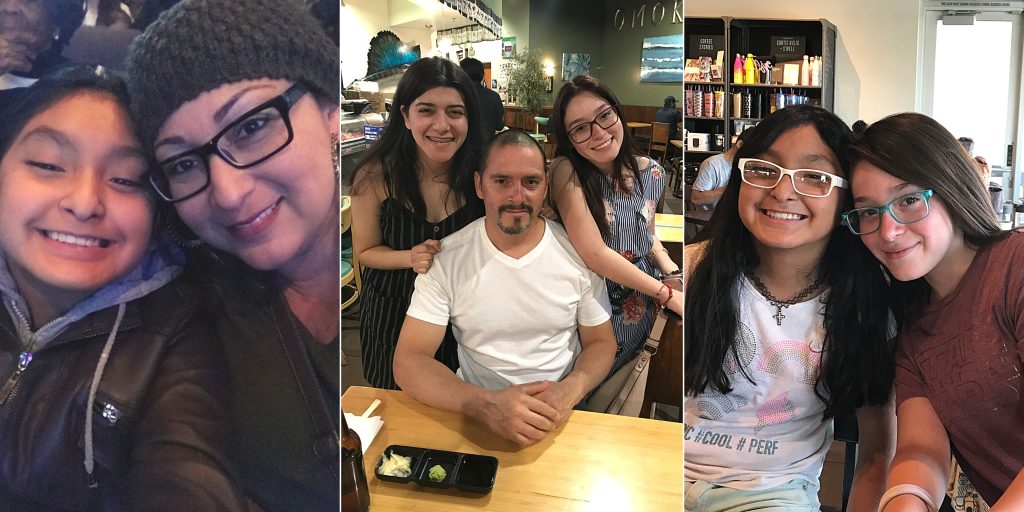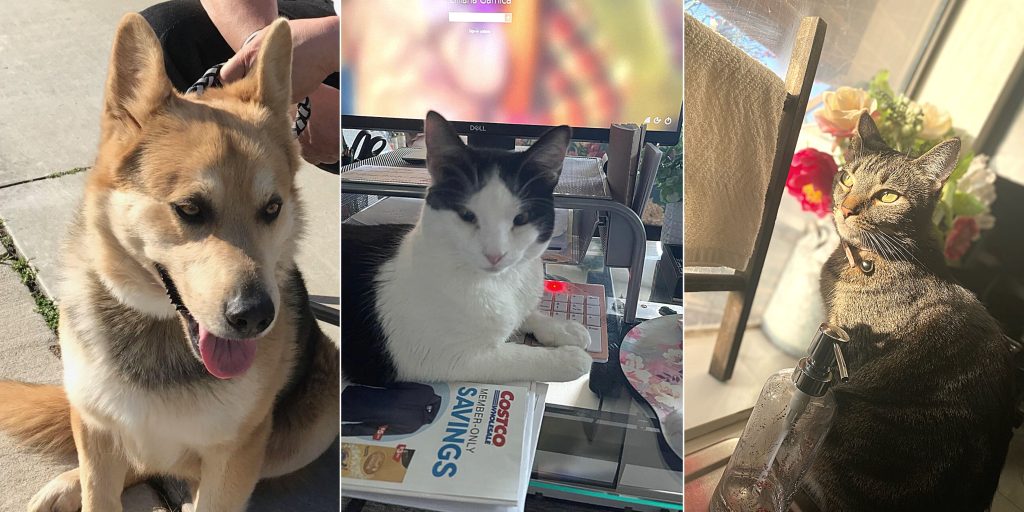Lilliana Garnica, IRC’s Cultural Specialist, was born in Yuma, Arizona, to Mexican immigrant parents, and is the youngest of three children. Her parents, now in their 70s, were both farm workers for over 20 years. She was raised in a traditional Catholic home with authoritarian parents. Her father, the traditional hard-working Mexican provider, whose long-working hours only allowed for quality memories not quantity. He showed his love and devotion by providing his family with everything they needed. Lilliana’s favorite memory with her father is playing on his back, as he pretended to be a raging bull trying to knock her off his back, but never failed to protect her from hurting herself. Her mother, in addition to working outside the home most of her life, was the traditional Mexican wife and mother. She was the errand runner, the cook, the housekeeper, the disciplinary, served everyone’s plate first, and was the last to eat, because warm tortillas was the way she showed her love and devotion to her family. Lilliana distinctly remembers her mother resting her legs every evening, relieving the fatigue and stress that the long days unforgivingly challenged her with.
At 50 years of age, Lilliana’s parents became U.S. Citizens. She remembers this accomplishment stating, “as many typical selfish and immature teenagers, I did not realize how important this event was for my parents and how deserving they were of such accomplishment. I often wish I could go back in time and re-live that moment with them.” Lilliana proudly shares that as far back as she can remember her parents were homeowners. Although they lived, dressed, and shopped very humbly, they ate like royalty, enjoying homemade tortillas, mole, pozole, birria, chiles rellenos, Mexican rice, freshly cooked beans, chilaquiles, and the traditional caldo de rez and caldo de pollo.
As a child, Lilliana was often her parents’ interpreter. As she got older, she became their advocate, exposing her at a young age to social injustices and discrimination. Over the years, she watched her parents struggle, overcome, and achieve. Lilliana learned the value of hard work, determination, sacrifice, and discovered her calling in advocating for those in need. Although her parents only had a second and third grade education from Mexico, they instilled in their family the importance of attaining an education. They aspired to see their children graduate high school and work in an office that had air conditioning, so they wouldn’t have to endure what they did in 115-degree heat while hand-harvesting grapes, strawberries, lettuce, and cotton in those never ending fields.
Lilliana graduated from Ganesha High School in Pomona, CA. She received acceptance letters to the University of La Verne, UC Riverside, and Cal State Fullerton; however, those plans changed in the summer after graduation, when she received the news that she was expecting her first child. Lilliana shared that becoming a mother was the most beautiful, yet most challenging time in her life. This new chapter helped ignite a fire that had been in her all along to drive her into becoming the professional she is today. Lilliana went on to earn a Bachelor of Science degree in Healthcare Management and a Master of Science in Human Services.
Today, Lilliana is married to her best friend of 17 years, a Mexican national from Ensenada, Baja California. Ensenada has become their second home, as they visit quite often with the family. They share a 13-year-old daughter, Victoria, who is as intelligent and determined as they come. Victoria never seizes to amaze them through her academic achievements, her involvement in speech and debate team, and her dedication to the freshman cheerleading squad. Lilliana’s first born, Andres, now a senior at Cal State San Marcos, is majoring in Criminology. Lilliana could not be prouder of the young man he’s become. Lilliana’s husband was a package deal that came with the addition of her stepson Felipe Jr., 24, and stepdaughter Keila, 19, a sophomore at Cal State Los Angeles majoring in Biology, and a veterinarian in the making.
A recent addition to the family, is Lilliana’s 14-year-old niece, MariLily, whom she has full guardianship of. MariLily is the daughter of Lilliana’s eldest, and only, brother who passed away in 2016, at 48 years old. His passing left the family heartbroken. “Having guardianship of my niece is a blessing. She is the most precious memory of my brother, and every time she smiles, it’s all him,” Lilliana stated. In January of 2021, Lilliana’s parents moved in with her and her family, and alongside her father, became her mother’s primary caregiver. Lilliana had this to say about her mother. “Watching my mom debilitate over the past seven years as Dementia and Parkinson’s chip away at her fierce, strong-willed, hard-working, and strict nature, is truly heartbreaking and at times makes me angry. However, when I get back up from feeling this way, I realize how blessed I am to still have both my parents and how my experience in the medical field gifted me with what my mom needs from me today.”
Lilliana is proud of her Mexican roots, fluent in Spanish, she enjoys connecting with people from all walks of life, and finds great interest in the challenging work related to diversity, equity, and inclusion. From 2000 to 2015, Lilliana worked in the healthcare sector in different capacities. Throughout this part of her career, she was a Medical Assistant, a Sonographer, and a Medical Office Manager, serving the most vulnerable populations in the community including people with disabilities, veterans, homeless, teen moms, foster children, and the geriatric community. In 2017, Lilliana was hired at Inland Regional Center as the Diversity Outreach Coordinator, which is now the Cultural Specialist position. “Since my years working in healthcare,” Lilliana said, “advocating for the vulnerable, the underserved, and those marginalized by complex systems, unveiled my passion for helping those who need it the most. My role at IRC allows me to continue to pursue that passion, and I’m humbled and thankful for the opportunity. As the Cultural Specialist, service access and equity (SAE), is the core of my daily tasks, and our consumers and families are at the heart of it. The expectation of SAE related efforts is positive impact that will remove barriers that our families face and bring them from the back rows to the front rows of provision of services.”
Besides being a wife, a mother, a caregiver, and a professional, Lilliana enjoys reading, camping, hiking, traveling, watching documentaries, spending quality time with her family, and hanging out with her cats and dog.
(The following questions have been answered by Lilliana)
What is SAE?
SAE is the abbreviation for Service Access and Equity. In past years we used words such as disparity, diversity, and underserved when referring to families that received less services from the regional centers. Today we use SAE along with these terms to highlight the overall goal of ensuring access to services and equity for all clients and their families.
Can you think of a story that stands out to you which made you realize the importance of your role for the families you serve?
The Cultural Specialist (CS) role at IRC includes connecting and building relationships with clients and families. It involves creating and coordinating projects and platforms that promote service access and equity with diversity and inclusion at the core of such efforts. The CS role also involves collecting and analyzing qualitative and quantitative data that serve as tools for creating innovative and impactful programs for IRCs underserved families. A story that highlights the importance of the Cultural Specialist role at IRC is of two IRC mothers who began attending a parent support group that I created with the support of my Program Manager and the Community Engagement team. These two mothers immediately demonstrated their innate leadership skills and their ambition to learn and grow. Today, one of these mothers is her daughter’s voice and advocate, the leader of the parent support group created by the Cultural Specialist, and a champion for equity and inclusion at her local school district. The other mother earned a master’s degree and started a non-profit organization that serves the special needs community. Both mothers have stated that the parent support group was an important steppingstone towards their achievements. I was humbled and inspired by their efforts, words and recognition.
Why are you passionate about what you do?
Diversity, equity, and inclusion of all people, particularly those from vulnerable populations, has been a passion of mine since my teenage years. Growing up with immigrant parents with minimal English skills and education, as well as being an advocate for them from an early age, my experiences throughout my former 15-year career in the healthcare sector and witnessing, and at times being the subject of such inequities, is what nourished my passion for helping those who are marginalized by systems and society.
Why was it important to create a page dedicated to SAE?
The creation of a SAE page on IRCs website is important for four major reasons: acknowledgment, commitment, transparency, and information. The SAE page in general demonstrates that IRC acknowledges that there is work to be done in relation to underserved clients. The SAE page commits IRC to continue striving towards equity of all the individuals it serves regardless of ethnicity, age, language, or where they live. The SAE page provides the opportunity for transparency to build trusting and sustainable relationships with clients, families, and community partners. The SAE page is a platform to share current information related to “all things disparity” and SAE tools for clients and families. This includes but is not limited to SAE programs provided by Community Based Organizations (CBO), the successes and challenges that impact these programs and the community, IRCs efforts towards cultural competency, and advocacy efforts at the legislative level.
What can someone expect to find on the SAE page?
The SAE page presents a breakdown of IRCs efforts related to diversity, equity, and inclusion. Visitors will find information about CBO programs and events available to clients and families. The SAE page provides information about IRCs cultural awareness and diversity efforts including its intra and inter agency platforms that help distribute important, accurate, and current information within the agency. A list of parent support groups available to the community and a list of frequently asked questions and common IRC language that clients and families can utilize as advocacy and empowerment tools, can also be found on the SAE page.
How can someone get involved or become an advocate?
To become involved or become an advocate, it’s vital to remain informed about IRC and generic services, and the communal, social, and legislative changes, successes, and challenges that impact the ID/DD community. Become familiar with The Lanterman Act, consumers rights, the role of the regional centers and service coordinators, and the appeal and complaint process. Strive to build relationships and partnerships with others who share the same passion and have a growth mindset. Empathy, passion, cultural awareness, and the continuous strive towards equity and inclusion should be intentional and at the center of getting involved and becoming an advocate. Lastly, use credible tools and guidance which can begin by staying connected with IRC at https://www.inlandrc.org/ and the Department of Developmental Services (DDS) at https://www.dds.ca.gov/.
Visit the Service Access and Equity page to learn more!
For questions, email [email protected]
Share this Post







